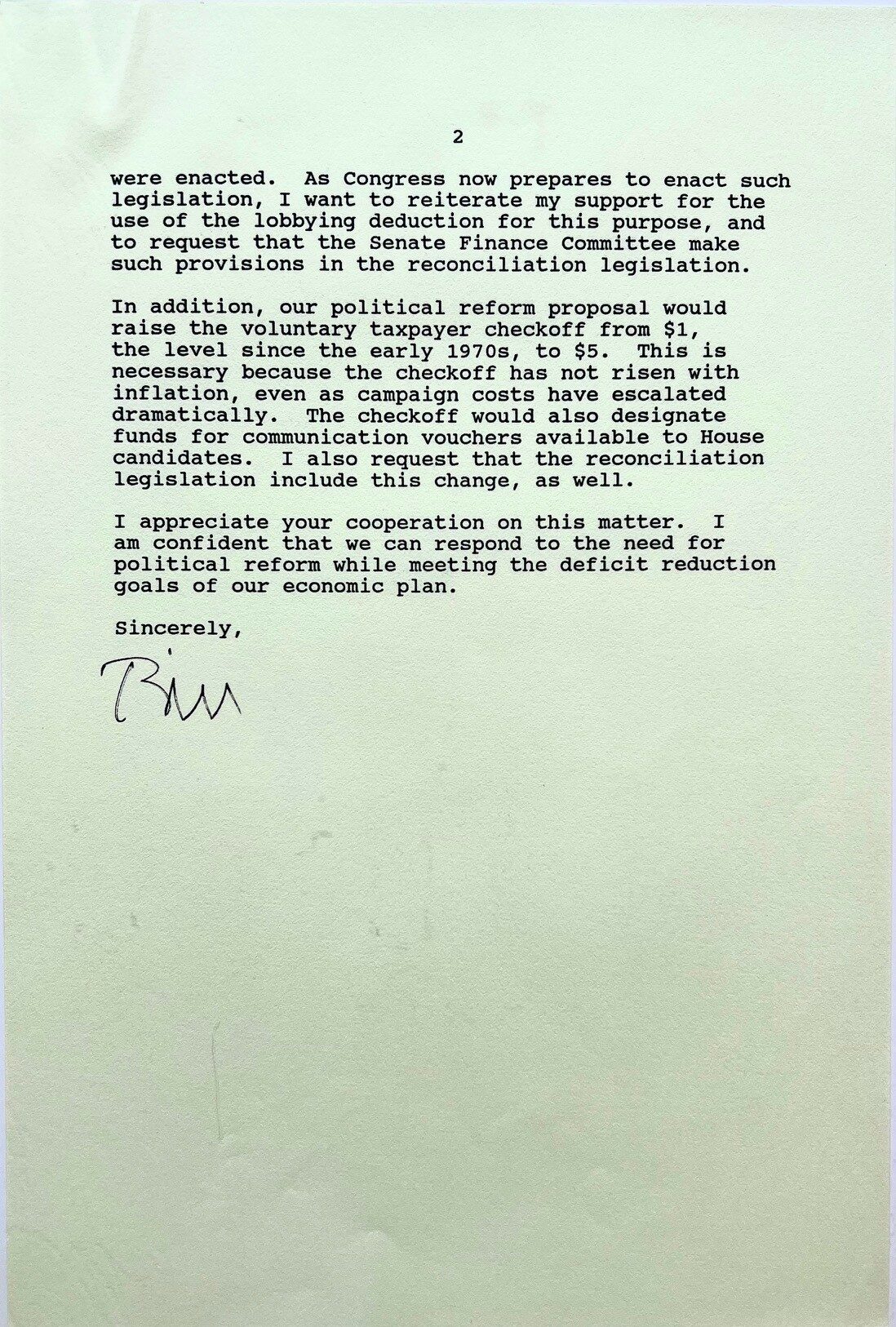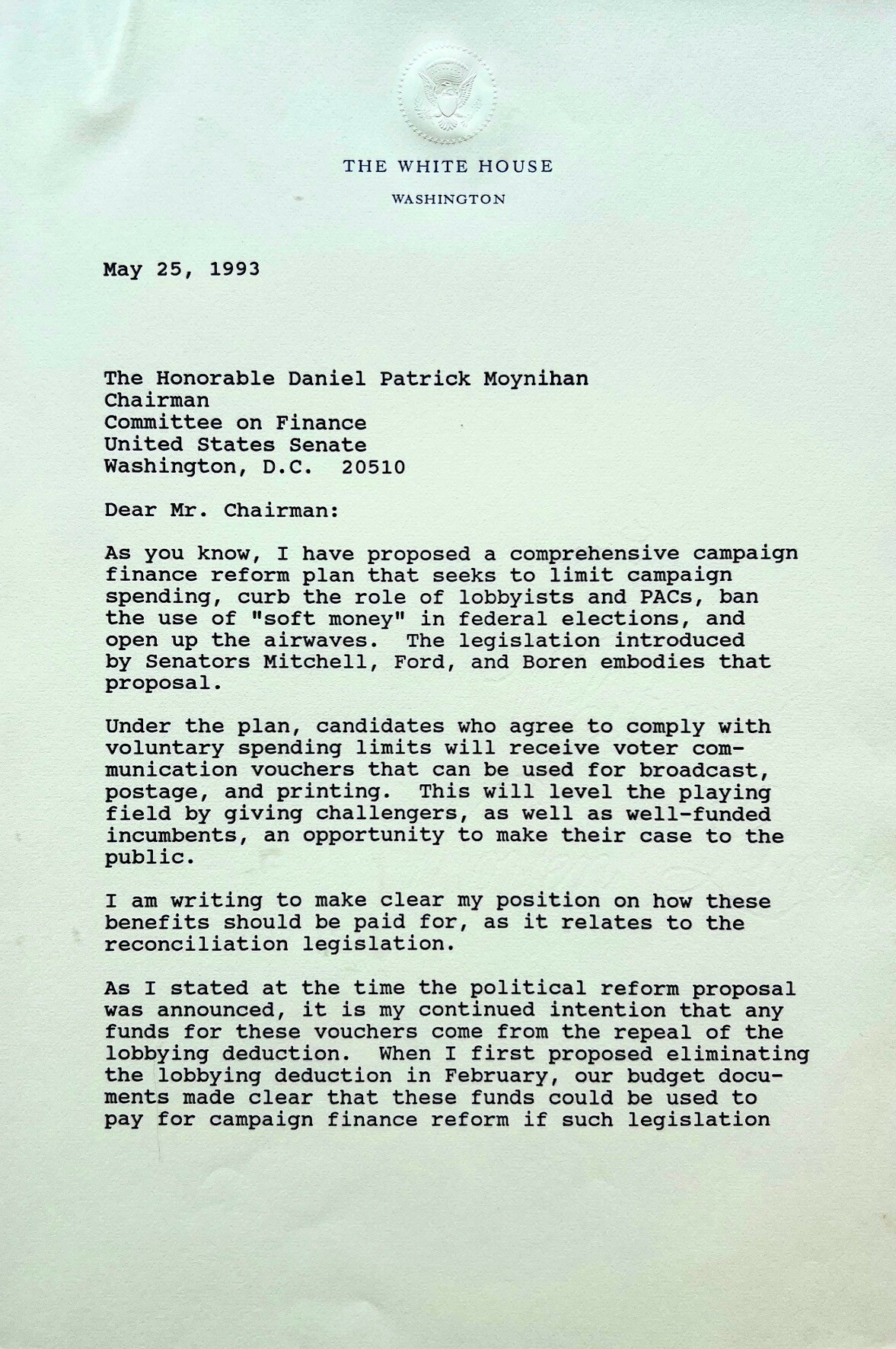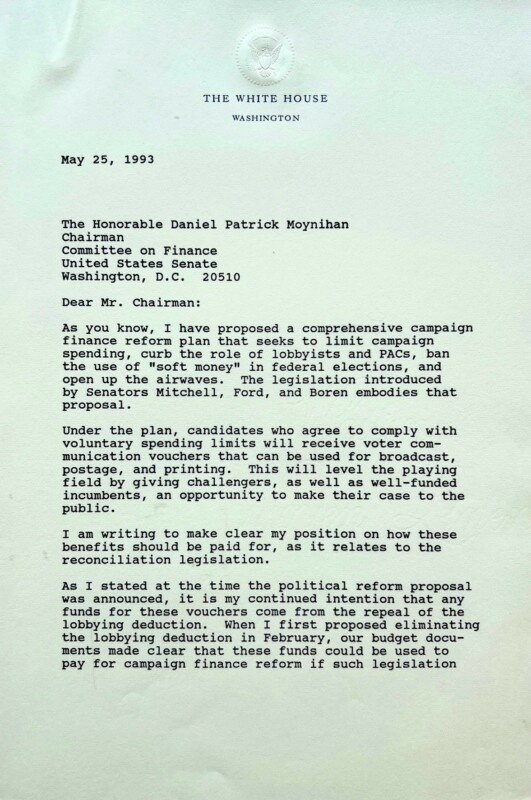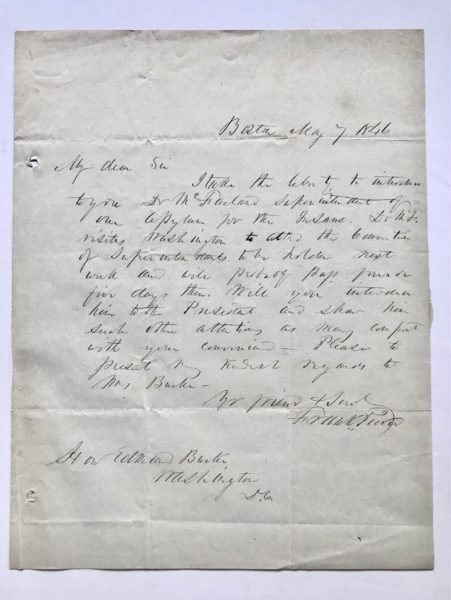As I stated at the time the political reform proposal was announced, it is my continued intention that any funds for these vouchers come from the repeal of the lobbying deduction. When I first proposed eliminating the lobbying deduction in February, our budget documents made clear that these funds could be used to pay for campaign finance reform if such legislation were enacted. As Congress now prepares to enact such legislation, I want to reiterate my support for the use of the lobbying deduction for this purpose, and to request that the Senate Finance Committee make such provisions in the reconciliation legislation.
In addition, our political reform proposal would raise the voluntary taxpayer checkoff from $1, the level since the early 1970s, to $5. This is necessary because the checkoff has not risen with inflation, even as campaign costs have escalated dramatically. The checkoff would also designate funds for communications vouchers available to House candidates. I also request that the reconciliation legislation include this change, as well. I appreciate your cooperation on this matter. I am confident that we can respond to the need for political reform while meeting the deficit reduction goals of our economic plan…”
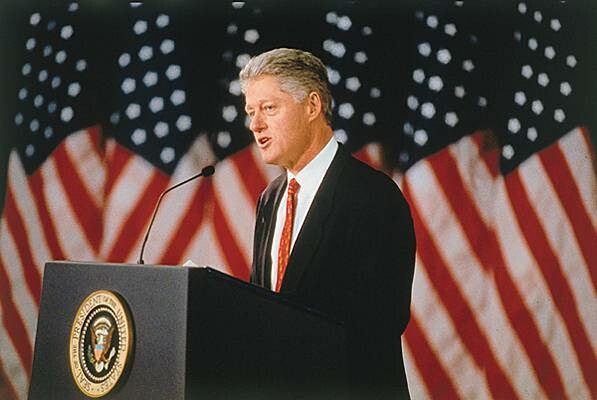
Bill Clinton
Clinton, a former Arkansas governor, became the youngest president since Kennedy upon his 1992 election, and his re-election made him the first Democrat since FDR to serve a full second term. Clinton’s eight-year tenure marked the longest period of peacetime economic expansion in America’s post-World War II history, and he left office with the highest approval rating of any president in the second half of the 20th century, even though a series of sex scandals overshadowed his accomplishments, (“Presidents and Prosperity,” Forbes). His 1998 impeachment by the House is only the fourth time in American history that a president had been impeached (Andrew Johnson and Donald Trump being the other two; all three presidents were acquitted by the Senate).
Our letter, written just a few months into Clinton’s first term, lays out his support for campaign finance reform efforts, spearheaded by Oklahoma Democratic Senator David L. Boren (b. 1941), a member of the Senate Committee on Finance, who introduced the House of Representatives Campaign Spending Limit and Election Reform Act of 1993. Boren stated that the legislation was meant to “establish preset spending limits and incentives to encourage compliance with those limits… [to] help put challengers on a more equal footing with incumbents… [and] take political influence away from deep-pocketed PACs and special interest groups,” (“Take Congress off the Auction Block,” The Washington Post, Boren, March 3, 1993). Although it passed with the support of Maine Democrat and Senate Majority Leader George J. Mitchell (b. 1933) and Kentucky Democrat and Democratic Whip Wendell H. Ford (1924-2015), and similar legislation was passed by the House of Representatives, both chambers could not resolve differences on the legislation and, even with Clinton’s eagerness to pass campaign finance reform, the effort foundered.
Despite his Democratic affiliations, Moynihan’s political career began as Republican President Nixon’s counselor on urban affairs. A former assistant secretary of labor under Kennedy and Johnson and director of the Harvard–MIT Joint Center for Urban Studies, he was chosen, in part, because of his academic background in social policy. His subsequent diplomatic career included ambassadorships to India and the United Nations. In 1977, he was elected to the Senate, representing New York from 1977 to 2001. A hallmark of his long and impressive senatorial career was his ongoing interest, as a trained sociologist, in American poverty and the problem of welfare dependency. At the start of Clinton’s term, Moynihan had just become chairman of the Finance Committee, prompting a close collaboration between the president and senator on such issues as the Family and Medical Leave Act and the thorny issue of welfare reform, a matter of special interest to Moynihan. Clinton bestowed the Presidential Medal of Freedom on the senator in 2000. Although Moynihan and the Clinton White House did not always see eye-to-eye, upon leaving his senate seat in 2001, Moynihan endorsed former First Lady Hillary Clinton who was elected to fill it.
With a paper clip indentation in the upper left margin. Never folded, and in overall excellent condition.

